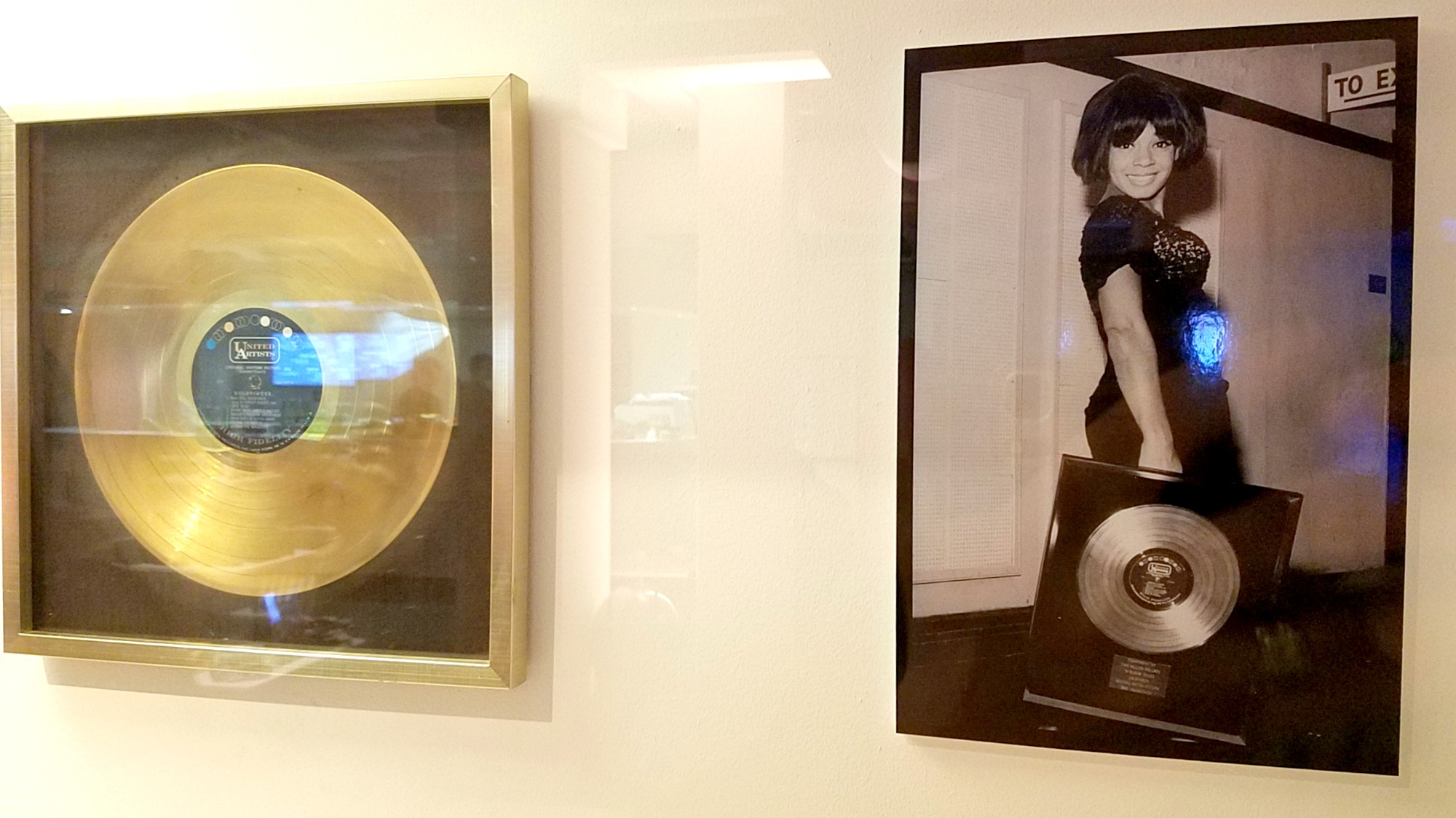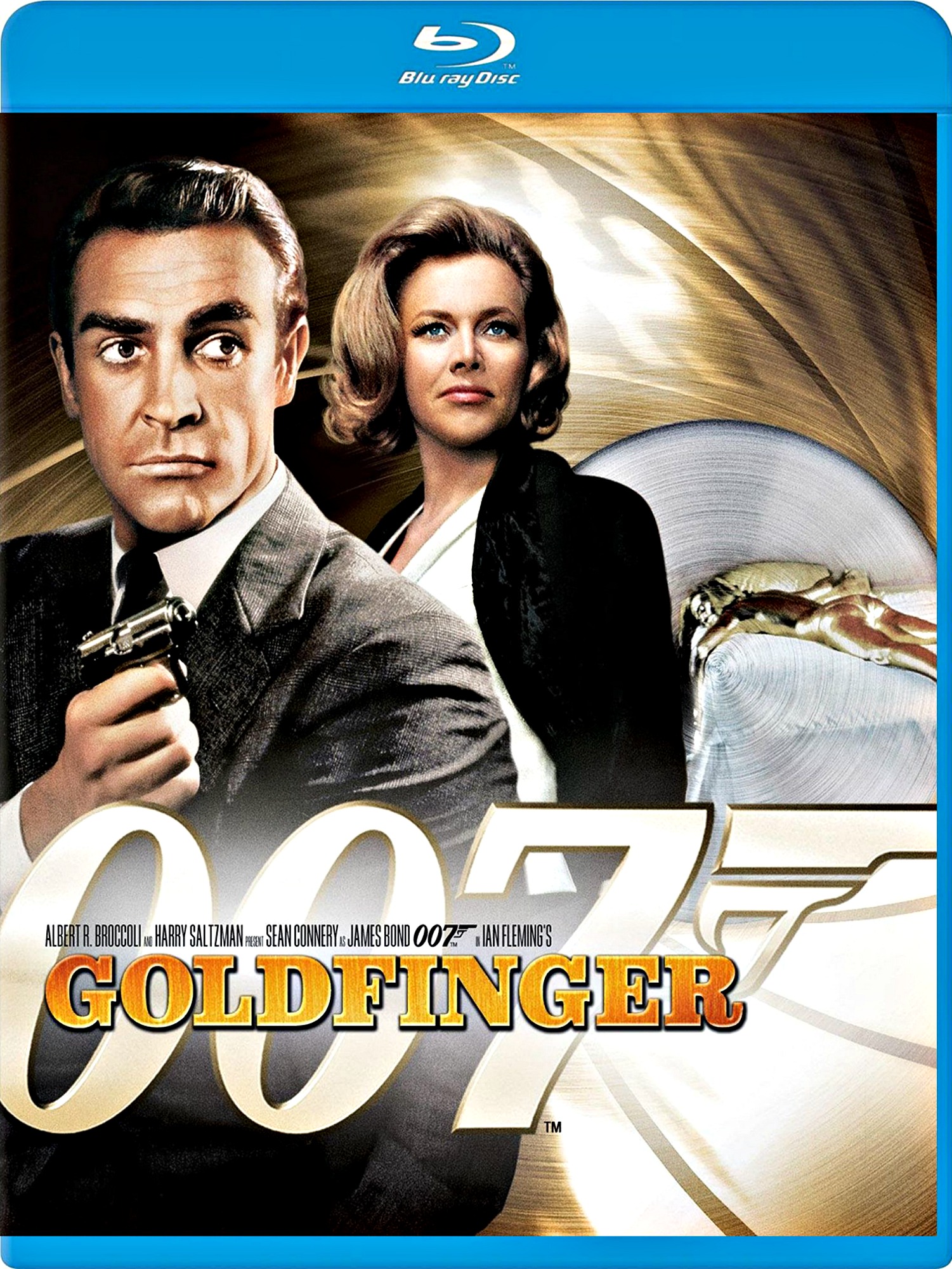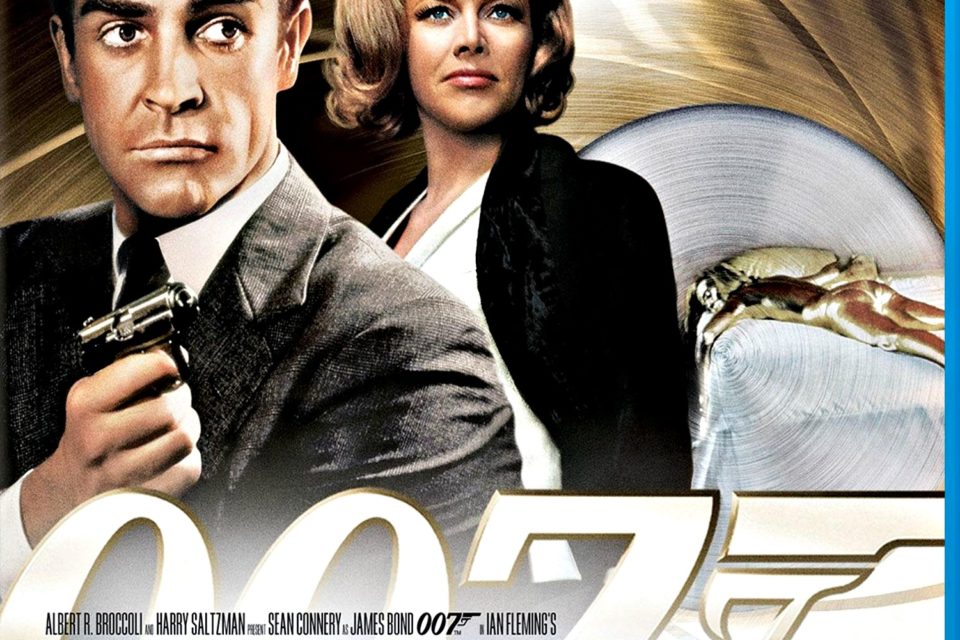Sean Connery is at his best in his third outing as James Bond in “Goldfinger” (1964) — widely considered the most iconic and memorable James Bond movie — stepping out of a wetsuit and sticking a rose in the lapel of his tux, and sipping nonchalantly on a drink as explosions of his own making erupt behind him. Soon after, he utters one of his familiar Joe Cool comments as he tosses a portable electric heater in the bathtub where he has just shoved an attacker, “Shocking; positively shocking.”
And Shirley Bassey’s dynamic title song would be a signature associated with the franchise for decades to come and launch an ongoing collection of 007 movie song hits that is unparalleled. For the first time in the series, the theme song is played over the opening titles, which also feature highlights of the upcoming movie, something not done again for decades to come.

First-time Bond director Guy Hamilton managed to create what would become the enduring image of 007, the suave and unflappable secret agent facing overwhelming odds in exotic locations and with nifty weapons to conquer a bigger-than-life foe, not to mention a beautiful woman who seems to have no interest in men despite the delicious name of Pussy Galore, to which a groggy Bond responds when she introduces herself, “I must be dreaming.” The upscale world is established immediately after the opening titles with a dazzling aerial shot that moves over the Fontainebleau Hotel in Miami and glides the viewer close enough to see a man diving into the pool. The enormous scale of Goldfinger’s personality and diabolical plan is made clear with the magnificent extravagant sets of his Kentucky war room and the imaginary glistening metallic interior of Fort Knox designed by Ken Adams.
And yet, Hamilton manages relative restraint (compared to his over-the-top direction of three later Bond installments, “Diamonds Are Forever,” “Live and Let Die” and the dreadful, “The Man with the Golden Gun”).
The Korean henchman called Odd Job, with the lethal bowler’s hat, is far more subdued than the ridiculous Jaws character of “The Spy Who Loved Me” and “Moonraker.” And Auric Goldfinger is not interested in ruling the world so much as he is in becoming the richest man on Earth through a clever scheme to increase the value of his gold reserve by knocking over Fort Knox.

Goldfinger also shows that he is unimpressed by Bond’s clever talk — “Choose your next witticism carefully, Mr. Bond; it may be your last.” — and perfectly capable of throwing those witticisms back in Bond’s face. As 007 lies strapped to a table with a laser beam threatening to burn him in half, starting at the crotch and moving north, Bond asks Goldfinger, “Do you expect me to talk?” To which Goldfinger responds with the best line of the entire series: “No Mr. Bond, I expect you to die.”
It was the first English-language film for the German actor who played Goldfinger, Gert Frobe, and his voice had to be dubbed. Honor Blackman (Pussy Galore) said Frobe had such a thick accent that she didn’t understand a word that he said during her first scene with him. Her only cue to begin her lines was when he stopped talking.
This is the movie that first refers to the gadget man as Q and establishes the ongoing humorous banter between Q and 007. It’s also the film that introduces the iconic Aston Martin DB5 loaded with technological devices and weapons, and that famous ejector seat – the film also nicely references Bond’s previous automobile of choice from the Ian Fleming novels, a Bentley.
“Goldfinger” does show its age, however, when among the things on Bond’s list of “things that just aren’t done,” is “listening to the Beatles without ear muffs.” (Beatlemania began in the U.K. in 1963, the year before this film was released in 1964, a few months after The Beatles came to America and appeared on “The Ed Sullivan Show.”)
In the penultimate scene inside Fort Knox in which the ticker on the atom bomb clicks down to 007 seconds before being stopped, you may wonder why Bond mentions averting doom had it gone “three more clicks.” The counter clock was originally filmed clicking down to 003 but producer Albert Broccoli later suggested reshooting the clock to indicate 007.
— by Scott Hettrick
